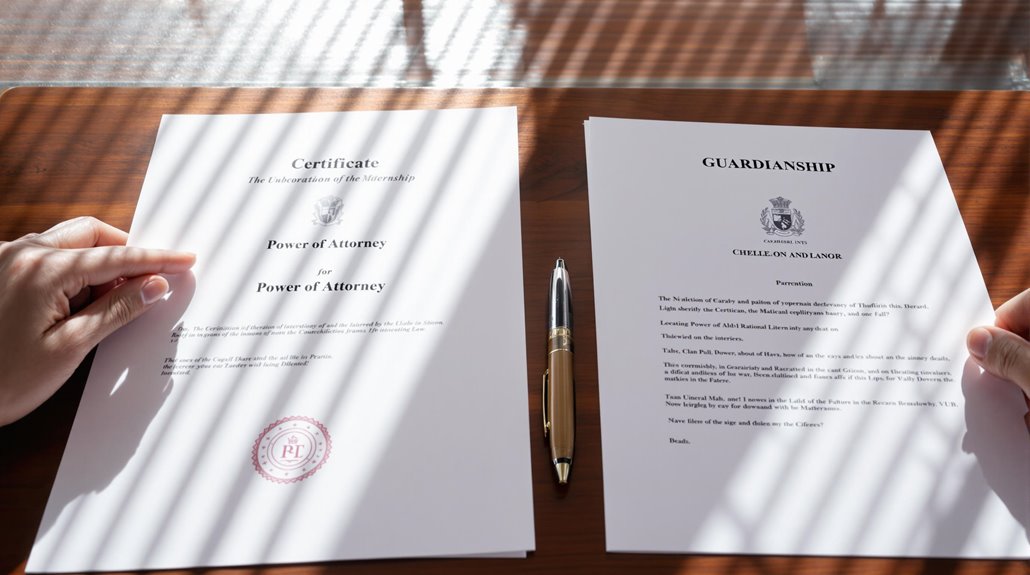New Jersey families face critical decisions when managing the care and affairs of loved ones who may need assistance with decision-making. Two common legal tools, Power of Attorney and guardianship, offer distinct approaches to this responsibility, each with its own requirements, costs, and implications. While both options aim to protect vulnerable individuals, understanding their fundamental differences helps families navigate the complex landscape of legal authority and caregiving responsibilities.
Key Takeaways
- POA is voluntarily established when a person has mental capacity, while guardianship requires court intervention after someone becomes incapacitated.
- POA costs $200-$500 in New Jersey, whereas guardianship involves higher expenses including court fees, attorney fees, and ongoing costs.
- Under POA, principals retain decision-making rights and can revoke authority, while guardianship removes these rights from the ward.
- POA requires only notarization and optional filing, but guardianship demands court petitions, medical evaluations, and regular oversight.
- Family members must establish legal authority through either POA or guardianship to make decisions for relatives in New Jersey.
Key Differences Between POA and Guardianship

When considering options for managing another person’s affairs, understanding the fundamental differences between Power of Attorney (POA) and guardianship is essential for making informed decisions.
The primary POA advantages include voluntary establishment while the principal retains capacity, allowing individuals to choose their own agent and specify the scope of authority. Additionally, POA arrangements can be modified or revoked by the principal at any time.
A Power of Attorney empowers individuals to select their representatives and define authority limits while maintaining control over the arrangement.
In contrast, guardianship limitations include mandatory court involvement, requiring proof of incapacity before establishment. The court appoints the guardian and maintains oversight through regular reporting requirements.
While guardianship provides extensive protection for incapacitated individuals, it removes their decision-making rights and autonomy. Understanding these distinctions helps families choose the most appropriate arrangement for their specific circumstances.
Cost and Legal Requirements
The financial and legal implications of establishing either a Power of Attorney or guardianship arrangement present significant considerations for families planning for future care needs.
The cost breakdown for Power of Attorney in New Jersey typically ranges from $200 to $500, with additional expenses for complex arrangements. Guardianship costs are generally higher, including court filing fees of $200-$300, attorney fees, and ongoing management expenses.
Filing requirements differ substantially between the two options. While POAs require notarization and optional county filing, guardianship demands formal court petitions, medical evaluations, and regular reporting.
POAs offer a more cost-effective solution, avoiding extensive court involvement. However, guardianship provides thorough oversight through court supervision, particularly beneficial in situations involving complex family dynamics or contested decision-making authority.
Rights and Responsibilities Under Each Option

Understanding the distinct rights and responsibilities associated with Powers of Attorney and guardianships proves essential for individuals considering these legal arrangements.
While POA agents must follow written instructions and act in the principal’s best interest, their responsibilities are typically limited to specific powers granted in the document. The principal retains decision-making rights while competent.
A POA agent’s authority extends only to specified powers, while the principal maintains control over decisions until deemed incompetent.
In contrast, guardians assume broader responsibilities under court supervision, managing personal care and financial matters as permitted by court order. They must submit periodic reports and obtain approval for major decisions.
The ward’s rights become considerably restricted, with their autonomy limited based on the court’s evaluation of capacity. Both arrangements require careful attention to ethical guidelines, though guardianships face stricter oversight through mandatory court reporting and review processes.
The Role of Family Members and Decision Making
Many families face complex challenges managing decision-making rights for relatives who become incapacitated in New Jersey. Contrary to common assumptions, family dynamics do not automatically grant decision authority to spouses, parents, or adult children.
New Jersey law requires formal legal arrangements through either Power of Attorney or guardianship proceedings to establish legitimate decision-making powers.
While POA allows for selective authority transfer in specific domains like healthcare or finances, guardianship provides extensive control over an incapacitated person’s affairs.
Family members seeking to assist loved ones must understand that without these legal mechanisms, they lack the authority to make vital decisions. The courts recognize this need for formal protection and offer clear pathways through POA documentation or guardianship petitions to establish proper legal standing for family caregivers.
Choosing the Best Path for Your Loved One’s Care

Selecting between Power of Attorney and guardianship represents a significant decision point for families caring for loved ones facing potential incapacity.
When evaluating options, families must carefully consider factors such as timing, cost, and the level of decision authority required for their specific situation.
- POA offers proactive control through advance directives while maintaining dignity and privacy, making it ideal for those who can still express their wishes.
- Guardianship provides thorough oversight and protection when immediate intervention becomes necessary due to existing incapacity.
- Understanding that POA requires advance planning while guardianship serves as an essential safety net helps families align their choice with their loved one’s circumstances.
The best path often depends on the individual’s current mental capacity, family dynamics, and the complexity of healthcare and financial decisions that need addressing.
Bottom Line
Understanding the distinctions between Power of Attorney and guardianship empowers New Jersey families to make informed decisions about their loved ones’ care. While POA offers flexibility and privacy for those who retain capacity, guardianship provides necessary protection through court oversight when individuals can no longer make decisions. Families should carefully evaluate their specific circumstances, considering factors like costs, legal requirements, and decision-making authority before choosing the most appropriate option.




